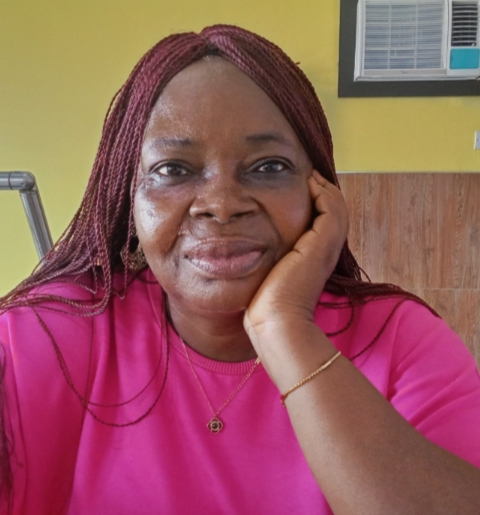Frank Archibong, Commissioner for Local Government and Chieftaincy Affairs, Akwa Ibom State. (Credit: X)
Abasifreke Effiong
Marriage rites in Akwa Ibom state have stayed notoriously expensive compared to neighbouring states in the region, while the law on limitation of dowry lays still, away from access by citizens.
Parents, guardians and extended families of maidens are demanding huge sum of money as dowry and a long list of gifts as parts of marriage rites.
These demands violate the limits on dowry and incidental expenses on marriage prescribe by the State law on limitation of dowry.
Exorbitant bride price in Akwa Ibom has scared away young, intending husbands, and it is identified as an incidental cause of elongated spinsterhood among some young girls in the State.
Dowry and incidental expenses for traditional marriage rites in the state are far exceeding N1million.
A groom spends ideally between N1.6 million – N4million on purchase of a long lists of gifts for marriage rites.
A typical marriage list in the State has at least 60 – 80 gifts including cartons of assorted gin, wine, alcoholic and non-alcoholic beverages, clothes and ornaments, food items, and cash an intending husband must gto the bride’s parents, maternal and paternal grandparents, extended family, community women, and youths.
Families in the Annang-speaking local government areas of the State have stretched their children’s marriage list beyond reasonable limits. They are including motorcycles, generator, sewing machine, wheelbarrow, rake, palm oil processing mill, among “customary” items that must be paid by their son in-law.
Across communities, dowry and incidental expenses are 6 -15 times higher than the limit of N200,000 (Two hundred thousand Naira) set by the Akwa Ibom State Limitation of Dowry Law 2000.
The notoriously costly dowry and incidental gifts demanded by families are stymieing the girl’s child right to marriage, putting young men who seek to marry from the State under pressure and draining their early adulthood income.
“It is a serious challenge that is making most of our girls unmarried. Most girls in their 30s and 40s who are not married is because of expensive marriage rites”, Magdalene Joseph told this reporter.
Magdalene’s marriage plan was called off in 2021 after her heartthrob was given a marriage list that was beyond his means.
“I met my man in the year 2020. In 2021, he came to meet my family and he was given a list that was in 12 parts. He was not comfortable with the list, he asked if some of the items could be expunged, the family said ‘no’. When he went back to his base, he started reducing the number of times he called me, later he stopped the voluntary up-keep support he used to send to me, finally he stopped taking to me.”
Part one of the marriage list entitled, Usiak Afang (loosely transliterated as opening the path) had the following items, machete with sheath, belt, file and small knife, wheelbarrow, spade, rake, big generator (SUMEC) with 10 litres of fuel, motorcycle (Mate 90), aside drinks and money.
“The family said the generator is for my elder brother while the motorcycle is for my sister since my parents are late. My siblings told them they don’t want it but they insisted that those items must be given regardless and must be presented before them for inspection.”
Magdalene said she could not contemplate another relationship after his heartthrob stopped talking with her because she feared the next person might also leave due to the exorbitant marriage rite.
Luckily, her heartthrob came back last year, and has agreed to go on with the marriage rites, maybe out of pity for her.
“When he came back late last year and said he will continue with the marriage rite, we went to check the price of the big generator the family demanded for, it costs about N600,000. The motorcycle is N1.2 million.”
Magdalene also recounted that her friend who hails from Abak, a neighbouring local government to hers, was kicked out of her relationship after six years because the man could not afford the bride price.
Last month, a wedding plan was aborted in protest due to exorbitant dowry and outrageous gifts demanded by the girl’s family.
The potential groom wrote on Facebook “I want to inform the general public that I have as a matter of urgency called off my wedding to Miss Happiness Okon. You can discard the wedding card. I tried my best.”
The post was accompanied with a-4 page marriage list with 107 items. N1,000,000 (One Million Naira) was written as the father’s bride price, while the mother’s was N500,000.
“Customary” items on the list included “a Qlink motorcycle” for the bride’s father, and “a lady’s motorcycle” for the mother. The current market value for a brand new Qlink motorcycle is N1.3 million and N1.1 million for a lady’s bike.
The Atlantic Observer in a survey last month asked 50 married men how much they paid as dowry and incidental expenses during their marriage. Incidental expenses are cost of gifts given to the bride’s family as part of marriage rite.
All the respondents said they spent more than N1million.
One of the respondents, Uwemedimoh Benedict, gave oral consent for us to publish his story, but without his photograph.
“My wife’s dowry as I paid to her father and mother was N230,000. But I spent of more than N800,000 on other items on the list. I went with my family to argue the list, but my father in-law only agreed to reduce the cartons of beer on the list by three. He insisted that I should pay other items complete as they were listed.”
“The funny thing is, that was the first time I had a savings that was up to one million Naira.”
READ:
• It takes courage to remain a police officer’s wife – Runke Ayilara
•Policy Alert takes FundTB advocacy to lawmaker
Mr Uwemedimoh got married in 2013 to his wife who hails from Etinan, an Ibibio-speaking tribe of the State.
Young low-income earners have borne marriage debts years after their wedding, our survey revealed.
“Many young guys who are not rich resort to taking loans to meet up marriage expenses or depend on fundraising from marriage committees to settle incidental expenses. The marriage list is long and the items are plenty”, a respondent told this reporter.
Marriage rites are affordable in neighbouring Cross River State. Dowry and incidental expenses are less than N200,000.
“My wife is from Odukpani in southern Cross River. We got married in 2013. The dowry and other items that my in-laws demanded from me didn’t cost more than N100,000”, one of the respondents, a journalist said.
▪ Citizens are not aware of the law on limitation of dowry
The Akwa Ibom Limitation of Dowry Law Cap 79 of 2000 limits gifts and payments on account of marriage in the State.
However, our interaction with a cross-section of citizens revealed there is no awareness of the law.
50 persons within the adult age bracket were asked if they are aware there is a law on limitation of dowry, none answered in the affirmative.
The updated laws of Akwa Ibom State are stored away in safes in an exclusive library at the Ministry of Justice, accessible to lawyers and law interns.
Copies of the updated law are not available at the State library at Udotung Ubo, at the House of Assembly library or online, when this reporter checked in the course of this investigation.
However, a librarian at the Ministry of Justice said a complete volume of the laws are available for sale to the public in the sum of N60,000.
Unavailability of the laws of the State at public libraries have limited citizens’ access and knowledge of the existence and provisions of these laws.
The limitation of dowry law has been operational effective July 1, 1956, and has been reviewed a few times before year 2000, yet public awareness remains low.
The law caps dowry and incidental expenses of a marriage to a maximum of N200,000.
Section 1 of the law states “notwithstanding any custom or practice, where no incidental expenses of a marriage are paid by the husband or intended husband or on his behalf, dowry shall not exceed in amount or value the sum of two hundred thousand Naira.”
“Where incidental expenses of a marriage are paid by the husband or intended husband or on his behalf, dowry shall not exceed in amount or value the sum of one hundred thousand Naira and the incidental expenses aforesaid shall not exceed in amount or value the sum of one hundred thousand Naira.”
In section 2, the law states that any person who asks, receives, gives, pays, promises or offers any dowry or incurs, promises, offers or attempts to incur incidental expenses of a marriage in excess of the maximum amount prescribed in the law commits an offence.
Any person who commits offence under the provisions of section 2 of the law commits an offence shall be liable on conviction to confinement for a period of two years or a fine not exceeding fifty thousand Naira.
• Urgent modification of marriage rite is needed
Akwa Ibom state focal person, Women’s Right Advancement and Protection Alternative, WRAPA, Princess Victoria Umoh, said families are making marriage rites chaotic, blaming the greed-driven demands by families on lack of knowledge of the law.
 Princess Victoria Umoh, Akwa State Focal Person, WRAPA.
Princess Victoria Umoh, Akwa State Focal Person, WRAPA.
“We are having a chaotic practice on dowry and marriage gifts because of lack of access and knowledge of the law. People just wake up and do whatever they want.We know that there is a law that limits dowry and incidental expenses, but the law is not accessible. Family members don’t have access to it.”
“Families are looking at marriage as an opportunity to collect something tangible from the groom. It’s sad that this is making us look like opportunists. I will attribute this to greed. We have forgotten that marriage is a relationship that can benefit you even more than the gift.”
She said high cost of bride price has delayed marriage for many young girls, and should be addressed as a challenge to girl’s right.
“Our children who are of marriageable age have sat at home and become grand-mothers because men who are supposed to marry them can’t afford what their families are demanding.”
Umoh posited that exorbitant dowry affects the groom’s attitude towards their in-laws, advocated the abolishment of gifts for bride’s grandparents on the marriage list.
“Including gifts for grandparents of would-be bride, some of whom had died, is an obnoxious practice that should be abolished. This practice is oppressive.”
She called on the traditional rulers council, the Ministry of Women Affairs and Social Welfare, to engage families on the law on limitation of dowry to modify the draining marriage practice.
















